On Tuesday night, Epix will be premiering their documentary Forgotten Four: The Integration of Pro Football. Tune in tonight at 8 p.m. for a history lesson you won't want to miss.
Football has become one of the most historical parts of our society. Super Bowl winning teams and coaches are revered like heroes and Hall of Famers such as such as Jim Brown and Jerry Rice have reached immortal status.
But there's one large story about the history of professional football that's gone untold for so many years.
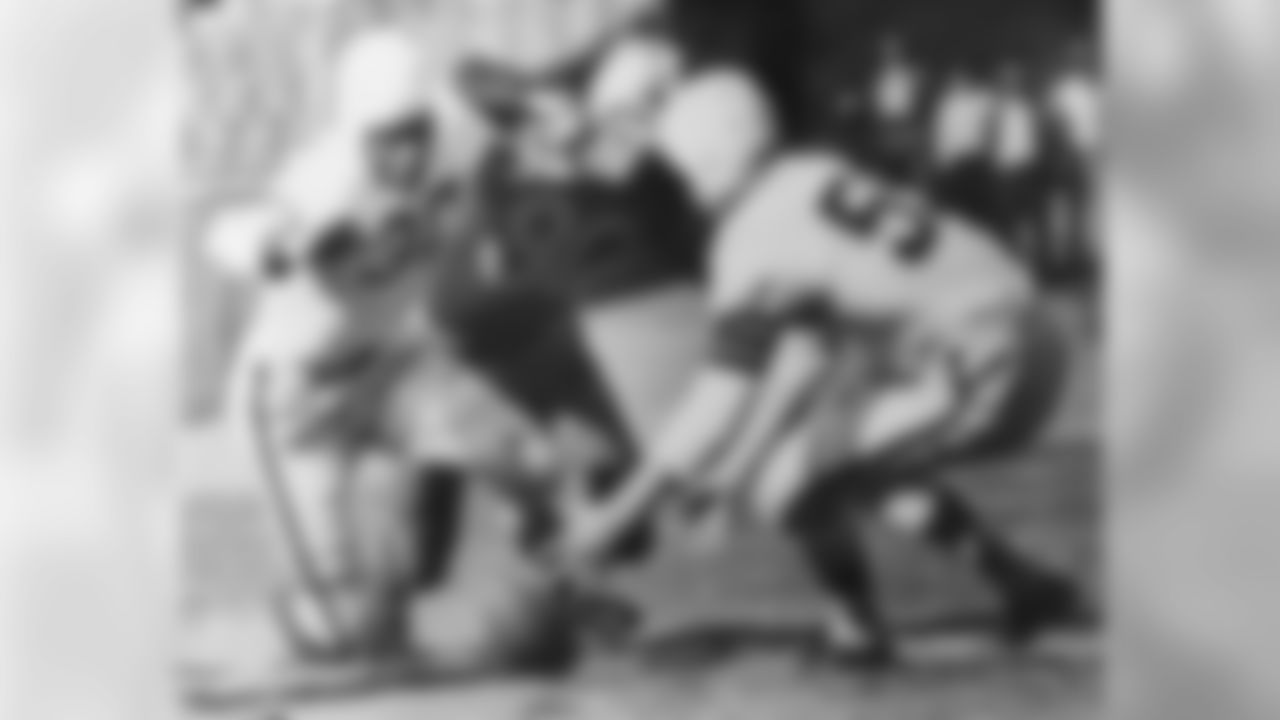
Alton Coppage and Bill Willis pounce on a fumble in 1946.

Bill Willis and Bill Lund representing the 1940s at the 60th anniversary season kickoff coin toss in 2006.
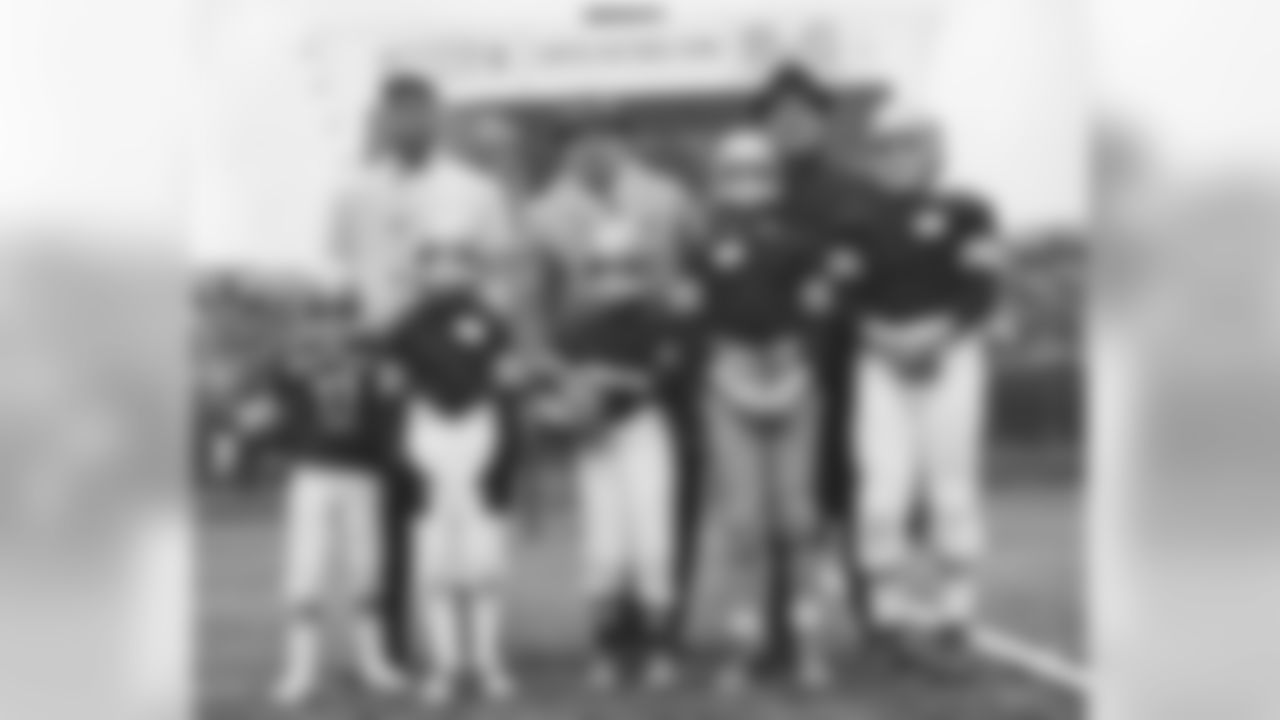
Bill Willis and Ed Sustersic with Punt, Pass and Kick participants.
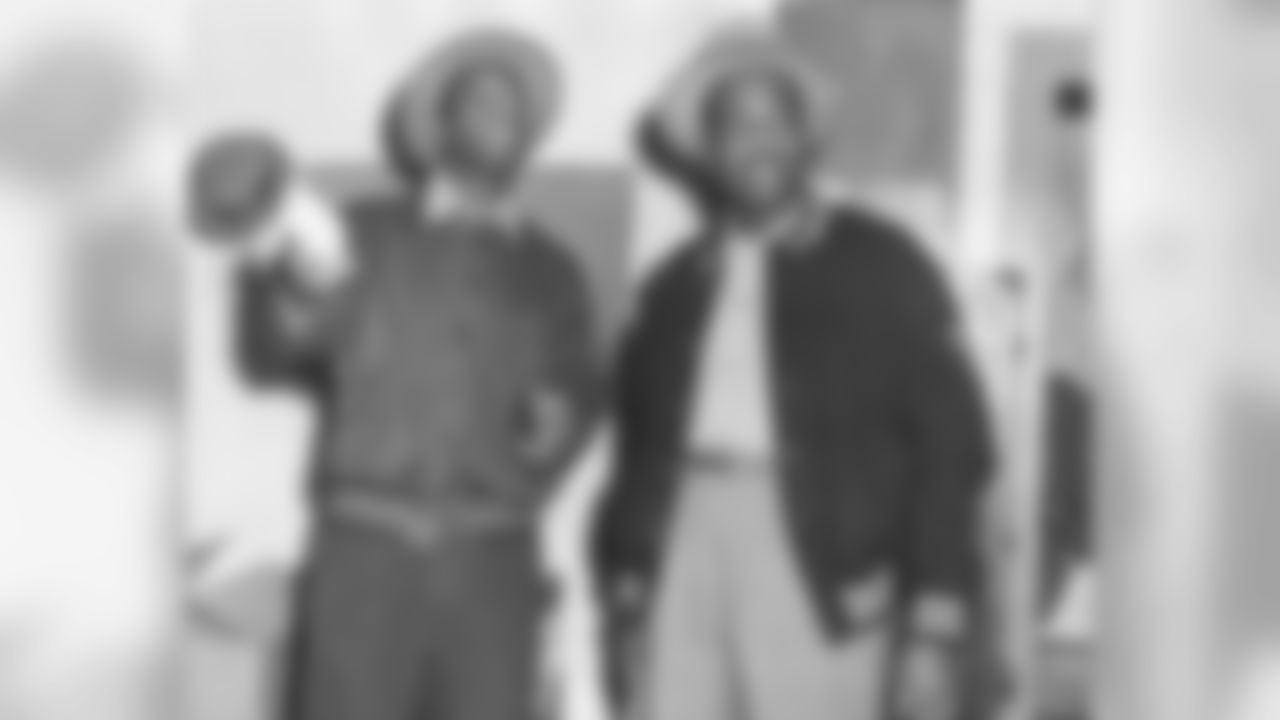
Bill Willis and Horace Gillom in 1952.

Bill Willis at Ohio State University.

Bill Willis at the Pro Football Hall of Fame in 2007.

Bill Willis helping to make a tackle.

Bill Willis in a posed action photo.

Bill Willis on the radio. He was an accomplished disc jockey in his day.

Bill Willis wearing number 60.

Bill Willis, coach Fritz Heisler, and Lin Houston hitting a sled in 1951.
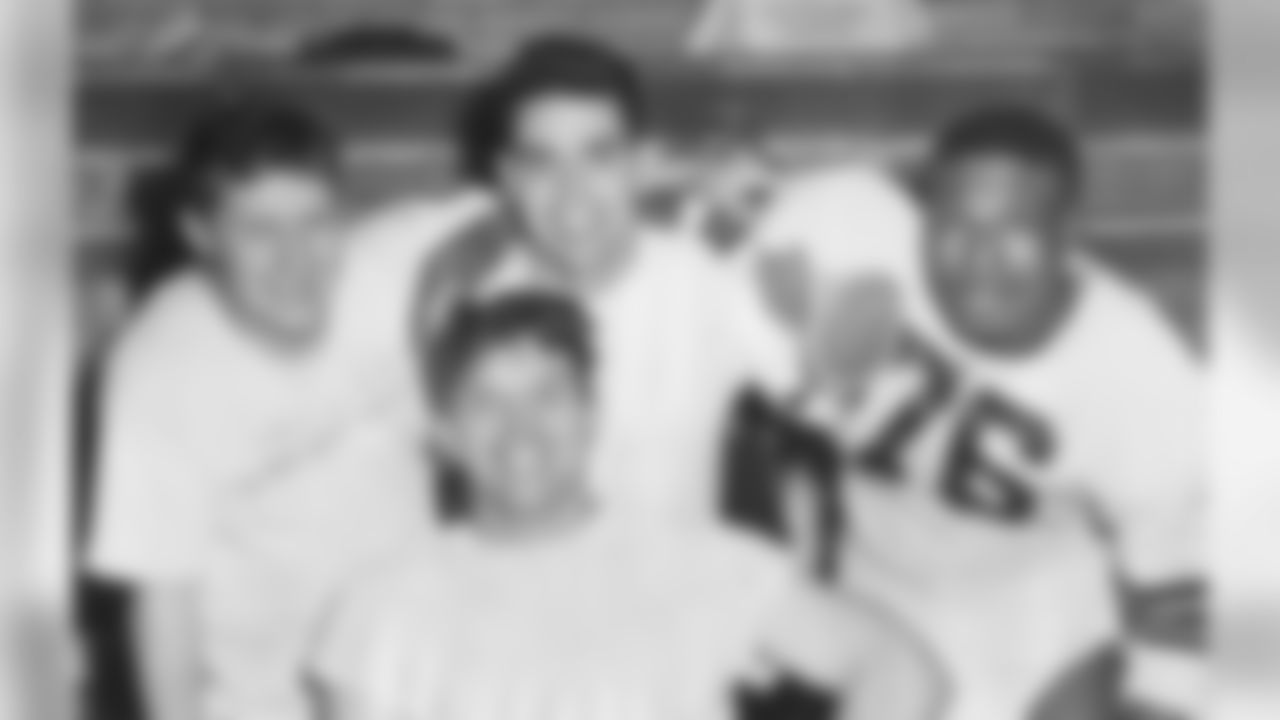
Edgar Jones, Otto Graham, Marion Motley and Lou Saban after winning the 1948 AAFC Championship Game

Forrest Gregg, Frank Gifford, Gale Sayers, Bart Starr and Bill Willis being inducted into the Hall of Fame in 1977.

Hall of Famers Paul Warfield, Chris Carter and Bill Willis.

Len Ford, Darrel Palmer, John Sandusky, Bill Willis, Forrest Grigg, John Kissell, and George Young.

Lin Houston, coach Fritz Heisler and Bill Willis work on technique in 1949.

Marion Motley and Bill Willis after winning 1946 AAFC Championship Game

Marion Motley and Lou Groza on the sidelines at a Browns game in 1968.

Marion Motley at Great Lakes Naval Academy in 1945.

Marion Motley at training camp in Bowling Green.

Marion Motley braces himself for impact with two defenders.

Marion Motley drags a would be tackler across the field.

Marion Motley in a promotional photo.

Marion Motley in his U.S. Postal Service uniform after football.

Marion Motley running the ball at the old stadium.
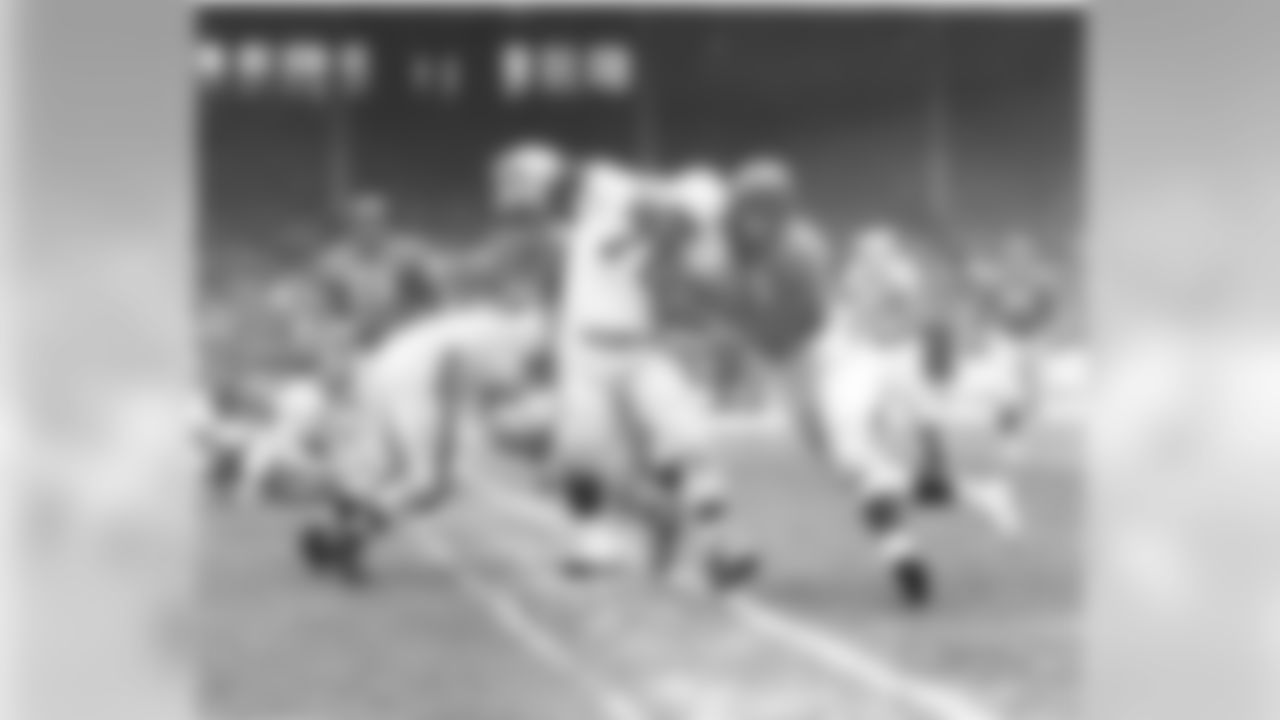
Marion Motley running with the ball against the New York Yankees.

Marion Motley runs a sweep with Dub Jones, and Lou Rymkus in the 1950 NFL Championship Game.

Marion Motley wearing number 36 in 1953.

Marion Motley wearing number 76 in 1951.

Otto Graham and Marion Motley working on their hand offs.

Paul Brown and Marion Motley.

Warren Lahr, Paul Brown, Ray Renfro, Bill Willis, Ed Sharkey (11-3-1952, CPC)
The Cleveland Browns are at the center of the film. After coaching for years at Ohio State, Paul Brown had been chosen to be the first-ever head coach of the Cleveland franchise in 1946.
Brown was dead-set on putting the best football team on the field, and breaking the NFL's informal rule barring blacks from playing the sport. Brown signed Bill Willis, one of his former players at Ohio State and Marion Motley, a world-class 240-pound athlete who also served next to Brown in the Navy during World War II.
Brown built an atmosphere within the football team that bonded all the players together, no matter their skin color. Brown was a progressive thinker who not only developed new football concepts – the West Coast offense, the draw play and watching film – but also thought talent didn't have a skin color.
"This story shows that when there is a will and a desire to make things happen, great things can happen," said Clem Willis, Bill's son. "Dad, with the help of Paul Brown, was pioneer not only in football but in life. And year after year, his teams became champions."
While Willis and Motley thrived in Ohio, two other black players were not as openly received on the West coast. Even though the Los Angeles Rams signed African-Americans Kenny Washington and Woody Strode, the players dealt with extreme bigotry and racial circumstances that made it tough to succeed.
The title of the documentary is appropriate. As time has passed, society has only truly recognized Jackie Robinson as breaking the color barrier. But in reality, Willis, Motley, Washington and Strode's impact was as big.

Ed Modzelewski, Paul Brown and Otto Graham in 1955.

Paul Brown and Indians pitcher Bob Feller.

Paul Brown at age 6 with Fletcher Bowe, in Marion, Ohio.
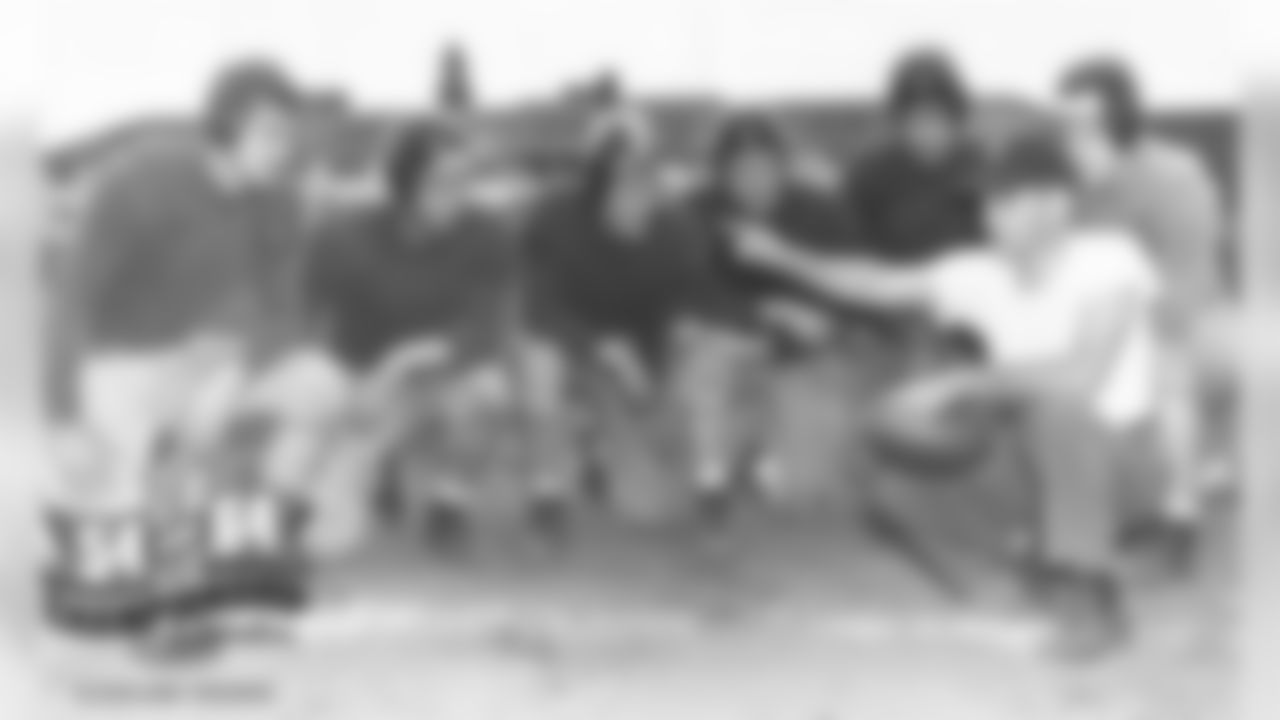
Paul Brown coaching at practive at the Great Lakes Naval Academy.

Paul Brown coaching at Ohio State University.
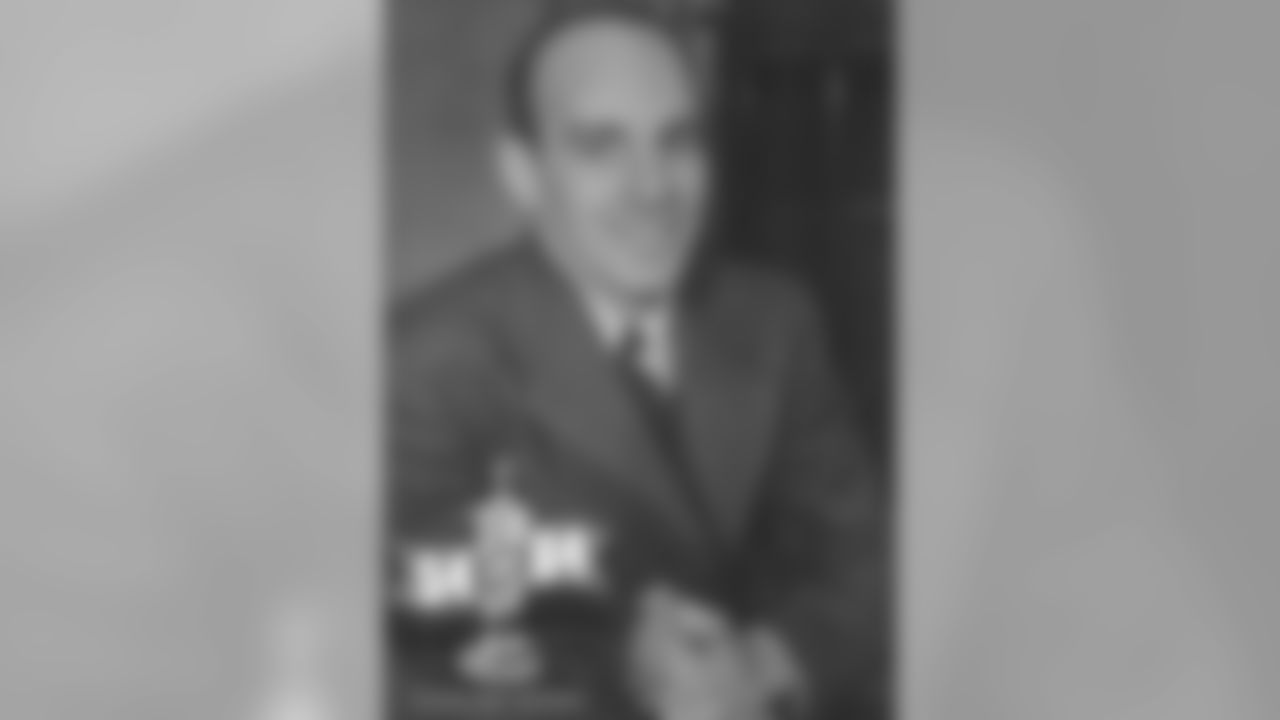
Paul Brown the day he was appointed coach at Ohio State University.

Paul Brown with the Massillon High School football team in 1925.















